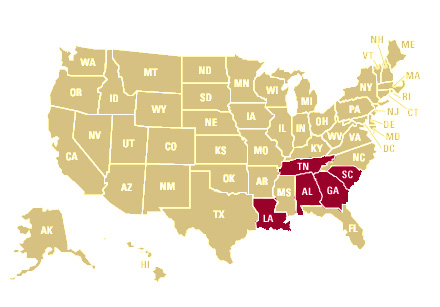[Editor’s Note: today’s post is brought to you by guest blogger John Manley, U.S. Immigration Attorney and Co-Liaison to U.S. Customs and Border Protection.]
 Several states began requiring various employers to use the E-Verify system as of January 1, 2012.
Several states began requiring various employers to use the E-Verify system as of January 1, 2012.
Here is a list of these states and their E-Verify laws that go into effect in varying stages:
1. Louisiana: Act 376 will apply to private employers who bid on public entity projects or enter into contracts with a public entity on or after Jan. 1, 2012. The law requires that private employers who bid on a public entity project or enter into a contract agreement with a public entity for the physical performance of services, confirm in a sworn affidavit that the company uses the E-Verify® system to validate the legal citizenship or legal alien status for all employees within the United States. If the employer is awarded a contract, he is required to E-Verify all new employees in Louisiana hired through the duration of the contract. The requirement applies to both general contractors and their subcontractors.
2. Alabama: Effective January 1, 2012, state contractors must use E-Verify. Effective April 1, 2012, every business entity or employer in this state shall enroll in E-Verify and thereafter, according to the federal statutes and regulations governing E-Verify, shall verify the employment eligibility of the employee through E-Verify. A business entity or employer that uses E-Verify to verify the work authorization of an employee shall not be deemed to have violated this section with respect to the employment of that employee. SOURCE
3. Tennessee: under the Tennessee Lawful Employment Act of 2011,the employment verification provisions will be phased in as follows [SOURCE]:
- All state and local government agencies must enroll and participate in E-Verify or request and maintain an identity/employment authorization document from a newly hired employee no later than January 1, 2012
- All private employers with 500 or more employees must enroll and participate in E-Verify or request and maintain an identity / employment authorization document from a newly hired employee no later than January 1, 2012
- All private employers with 200 to 499 employees must enroll and participate in E-Verify or request and maintain an identity / employment authorization document from a newly hired employee no later than July 1, 2012
- All private employers with 6 to 199 employees must register and utilize E-Verify or request and maintain an identity / employment authorization document from a newly hired employee no later than July 1, 2013
4. South Carolina: the South Carolina Illegal Immigration and Reform Act requires all employers to enroll in the U.S. Department of Homeland Security’s E-Verify system beginning January 1, 2012 and to verify the legal status of all new employees through E-Verify within three business days. Employers may no longer confirm a new employee’s employment authorization with a driver’s license or state identification card. SOURCE
5. Georgia: The E-Verify Provision in Georgia’s H.B. 87 will require Georgia businesses with 500 employees or more to check their employees using E-Verify. Workers must be U.S. citizens or otherwise authorized to work in the country in order to be hired. The requirement takes place in phases. Starting July 1, businesses of 100 or more must use E-Verify. By January 2013, all businesses with more than 10 employees will be required to use the system. Those with 10 or fewer employees are exempt. SOURCE
Disclaimer: The content of this post does not constitute direct legal advice and is designed for informational purposes only. Information provided through this website should never replace the need for involving informed counsel on your employment and immigration issues.
Discover how Tracker’s electronic I-9 software service lets you produce flawless I-9s every time. Feel free to contact us we’d love to hear from you.